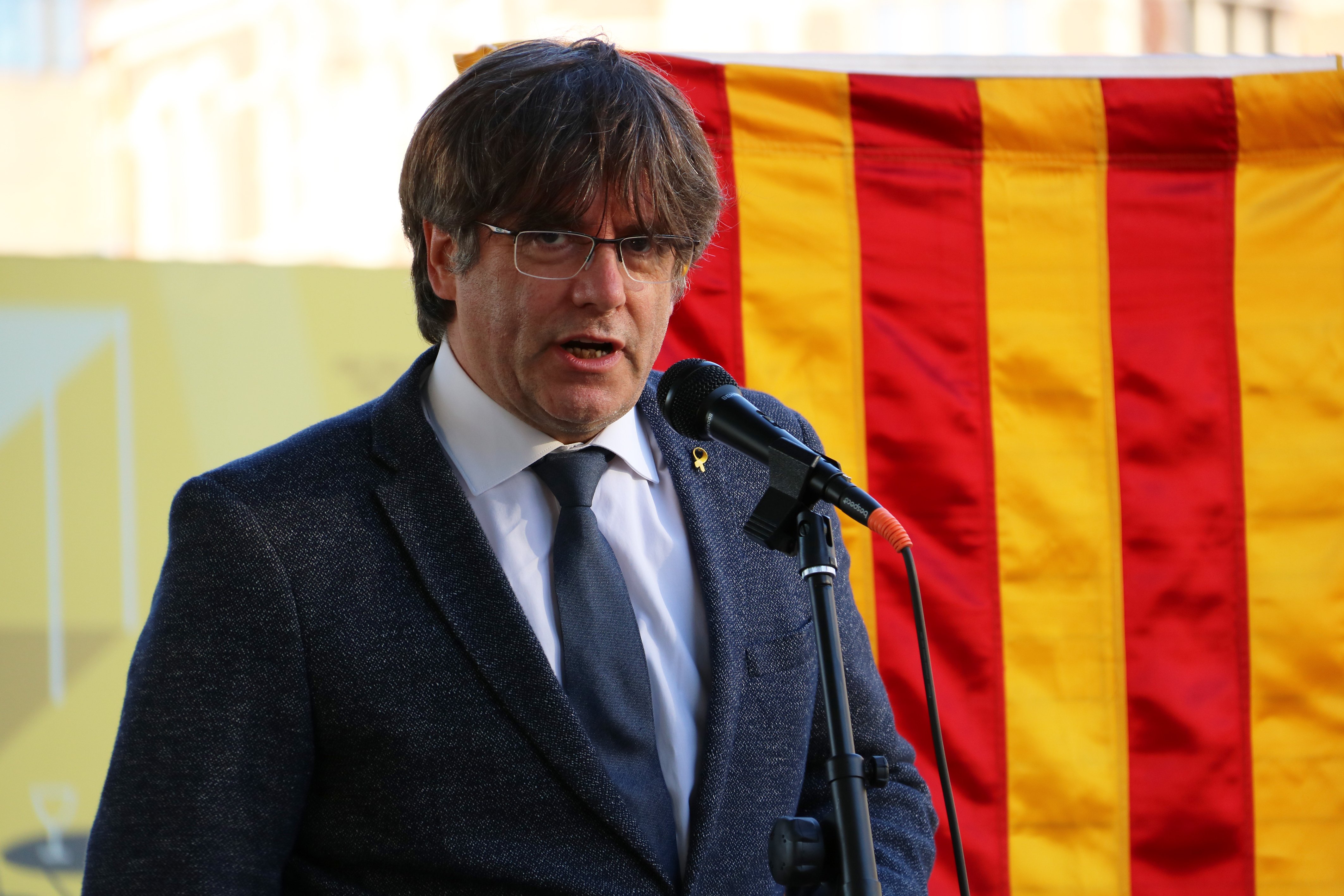In a speech to coincide with Catalonia's national day, the Diada, Catalan president in exile Carles Puigdemont has argued that the dialogue table with the Spanish government is worthless if it does not ensure a referendum. As president of the Council for the Catalan Republic, he reiterated the message addressed to Pedro Sánchez's Spanish government: "Negotiations with the Spanish state must be based on the right to self-determination and must respect political rights, as well as being independently mediated." In addition, he considers that "until the debate arising from the referendum materializes (...) the conditions for fighting for independence continue to exist". And he calls the Spanish state an "authoritarian regime", a type of government which "you can't do deals with". All in all, he concludes, "To save democracy, it has to be confronted."
Compare the election with a referendum
Puigdemont also gave the first clues as to how he will approach the Catalan elections that will be held sometime in the next few months. In the video he asserts that "any election to Parliament will have the character of a referendum" if the "mandate" of the 1st October referendum has not been fully materialized. The Catalan MEP urges the independence movement to "prepare" for the "inevitable confrontation" with the state and calls on people to taked advantage of what he considers is a moment of state weakness. "The situation of institutional crisis in the state is serious."
The nuances of dialogue
Given the economic, social and health crisis arising from the coronavirus, Puigdemont agrees that it is necesary to celebrate the Diada of September 11th in an "atypical way", but he asserts that it must be made compatible with continuing to fight for independence: "We want to show our solidarity with all those affected and those who have lost a loved one. We need to strengthen public services, which are the essential foundations of the future Catalan Republic." The lack of full autonomy and the current situation of imprisonment or exile of politicians means, according to Puigdemont, that the Catalan people have become a "national minority subject to fierce authoritarianism." That is why the dialogue table is a key issue in much of his speech: "Dialogue must not be used to mask repression and having a dialogue table does not mean that the conflict is resolved."
A similar line on the dialogue table, criticising its sterility, accentuated by the onset of the coronavirus pandemic, was taken by another key Catalan politician on Wednesday: Oriol Junqueras. In a letter published yesterday in the Portuguese newspaper Público, Junqueras lamented that "nothing has changed with the PSOE and Podemos" and called for the internationalization of the conflict. For now, the interests of each side continue to run in parallel - without a point of intersection - and Spanish PM Pedro Sanchez has confirmed that a second meeting is being discussed, but he repeated that the Catalan side will only find that Sánchez has a will for "re-encounter"and not self-determination, as he has already told the Spanish Senate.
Puigdemont's message, published in his role as president of the Brussels-based Council for the Catalan Republic, is a call for the reinforcement of pro-independence determination, and asks supporters for the "will to overcome obstacles, perseverance and a strengthening of the strategic unity of all in favour of the right to self-determination". In addition, he also made contrasting mentions of two different institutions.
Remembering the Bourbons
On the one hand, the United Nations, which, as Puigdemont notes, accepts "the right to self-determination and to an independent state as a people's right to recognition." On the other hand, the Spanish monarchy: he skips over the current Bourbon kings, Juan Carlos I and Felipe VI, to go back to Felipe V. Coinciding with the Diada, a historical commemoration of a tragic past, Puigdemont recalls Felipe V, the first Spanish monarch of the Bourbon dynasty (reigning 1700-1746) who was brought to power by the War of the Spanish Succession. A war in which, it must be remembered, the brutality that Felipe V’s commanders inflicted on Catalonia, during and after the conflict, was nothing more than the manifestation of an out-of-control contest to prove military merit.

